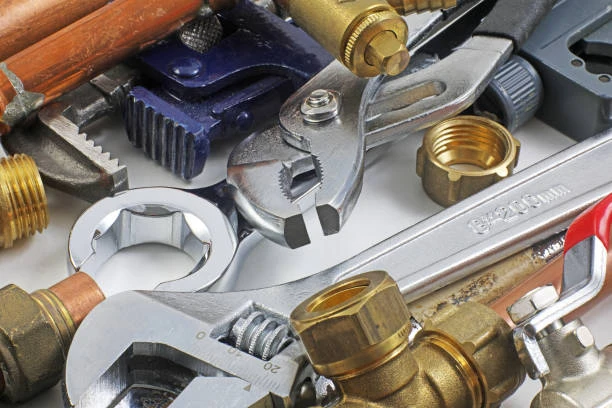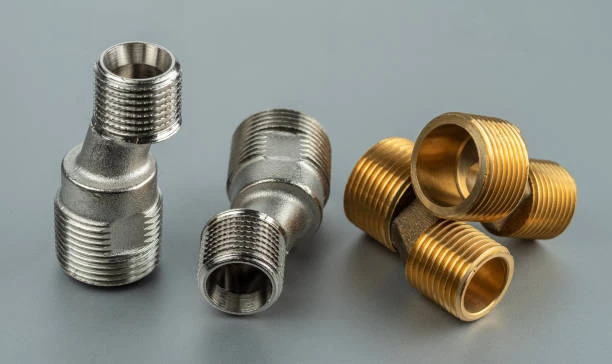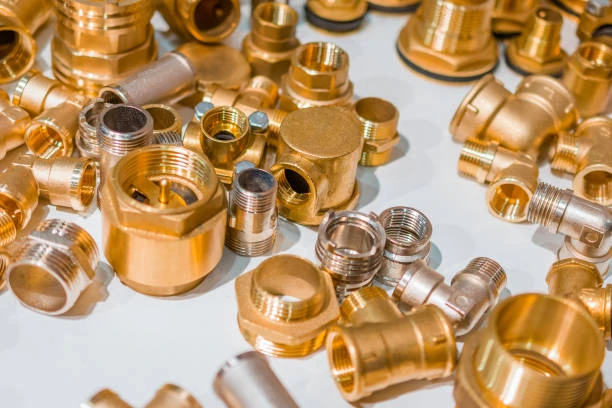The world of plumbing materials is a critical aspect of the construction industry, with millions of homes and commercial buildings relying on the integrity and safety of piping systems, Among the various materials used in plumbing, brass fittings have long been favored for their durability, corrosion resistance, and ease of installation. However, in recent years, legal concerns have arisen regarding certain brass fittings, leading to lawsuits and class action settlements.
One of the most notable cases in the plumbing industry involves Vanguard Piping and Viega Brass Fittings, with the latter company involved in a class action lawsuit that resulted in a significant settlement. This article will dive into the details of the Viega brass fittings class action settlement, what it means for consumers and industry professionals, and why this case is significant for the broader plumbing sector.
Understanding the Vanguard Piping and Viega Brass Fittings Class Action Settlement
The Viega brass fittings class action primarily revolves around concerns relat to the quality and performance of brass fittings manufactur by Viega, a company that well-regarded for its advanc plumbing solutions. Vanguard Piping, another major player in the piping industry, also found itself involved in the litigation.
The lawsuit claimed that certain brass fittings manufactured by Viega had defects that could lead to premature failure. This could manifest in issues like leaks, corrosion, and even system failure—posing potential risks to residential and commercial plumbing systems. The plaintiffs alleged that these defective fittings failed to meet the industry standards for reliability, safety, and long-term performance.
The Key Allegations
At the heart of the legal dispute was the claim that some brass fittings, particularly those manufactured by Viega, contained inadequate lead content or exhibited premature signs of deterioration, causing failure over time. Brass fittings, although known for their corrosion resistance, can still be prone to degradation if the alloy composition is improperly balanc, particularly with lead.
Lead is a known toxic substance that poses serious health risks, especially when leached into drinking water. For this reason, in 2014, the Reduction of Lead in Drinking Water Act was enact in the U.S., significantly reducing the amount of lead allowed in plumbing fittings used in potable water systems. The lawsuit centered around allegations that Viega’s brass fittings contained more lead than the allowable limits, potentially leading to contamination of drinking water systems.
Another allegation raised by consumers was that the brass fittings were prone to premature corrosion or mechanical failure, which could cause significant damage to plumbing systems. If these fittings degraded early, leaks or ruptures could lead to costly repairs and system downtime, potentially damaging homes, buildings, and infrastructure.
The Settlement: What Does it Mean for Consumers?
As part of the class action settlement, Viega agreed to compensate consumers who had purchased and used the allegedly defective brass fittings. The terms of the settlement included financial compensation, repairs, or replacements for those who had experienced issues with their plumbing systems due to the faulty brass fittings.
In addition to the monetary compensation, Viega agreed to improve the manufacturing processes for its brass fittings, ensuring that future products meet stricter quality control standards. This would include ensuring compliance with lead regulations and other key industry standards for product durability.
Consumers who were affected by these defective brass fittings had the right to file claims for compensation under the class action settlement. This offered an avenue for homeowners, contractors, and businesses who had invested in Viega products to receive reimbursement or repair assistance if they experienced issues related to the defective fittings.

Why This Settlement is Important for the Plumbing Industry
The Viega brass fittings class action settlement has far-reaching implications for the plumbing industry as a whole. Here’s why this case is significant:
1. Increased Awareness of Product Quality
The lawsuit and settlement have brought attention to the importance of product quality in the plumbing industry, particularly regarding brass fittings and their performance in real-world applications. Plumbing professionals and consumers alike have become more conscious of the potential risks associated with faulty fittings, leading to a demand for greater transparency and reliability from manufacturers.
2. Stricter Standards for Brass Fittings
As a result of the class action, manufacturers are likely to adopt more stringent quality control procedures. Brass fittings must now be test more thoroughly to ensure compliance with safety standards, especially regarding lead content. This is crucial, as public health concerns regarding lead exposure from plumbing systems remain a top priority for regulatory bodies like NSF International.
3. Legal Precedents for Future Cases
The Viega brass fittings settlement may also set a precedent for future legal cases concerning the safety and quality of plumbing materials. This case shows that manufacturers are held accountable when their products fail to meet regulatory standards or if they pose a risk to public health and safety. It emphasizes that companies must be diligent about testing and certifying their products, or face the risk of legal action.
4. Consumer Protection
For consumers, this settlement underscores the importance of knowing their rights. If you’ve purchased products that are found to be defective or dangerous, you have the right to seek compensation, repairs, or replacements. Class actions serve as a powerful tool for holding manufacturers accountable and protecting consumer interests.
Brass Fittings: A Common Plumbing Material
However, as the Viega case shows, even materials that are otherwise consider durable and reliable can fail under certain conditions. This underscores the importance of choosing high-quality, compliant materials, especially in critical systems like drinking water supply or heating.
What You Should Know About Brass Fittings and Lead
Brass fittings have a history of using lead as part of their alloy mix because lead provides malleability and strength. However, the Reduction of Lead in Drinking Water Act has restricted the amount of lead allowed in plumbing fittings to a maximum of 0.25% by weight. This regulation is design to protect consumers from the harmful effects of lead exposure, particularly through drinking water.
Manufacturers of brass fittings must now ensure that their products comply with these stricter lead regulations. Many companies, like Viega, have reformulated their products to reduce the lead content while maintaining the durability and performance that brass fitting are known for. However, cases like the Viega brass fitting class action settlement serve as a reminder that some products may still fall short, and it’s critical for manufacturers to continuously monitor and improve product quality.
Conclusion
The Vanguard Piping, Viega Brass Fittings class action settlement serves as a pivotal moment for the plumbing industry. It highlights the importance of product quality and compliance with safety standards, particularly regarding materials like brass fitting that are widely us in critical infrastructure systems.
For consumers, this settlement is a reminder to be vigilant about the quality of the products they purchase, especially in plumbing applications. For manufacturers, it reinforces the need for strict quality control and adherence to regulatory standards, as failure to do so can lead to legal consequences and damage to a company’s reputation.
FAQs
- What was the Vanguard Piping, Viega Brass Fitting class action settlement about?
The settlement arose from allegations that certain Viega brass fitting were defective, potentially leading to premature failure and excessive lead content, which could pose health risks in drinking water systems. - What does NSF certification mean for brass fitting?
NSF certification ensures that brass fitting meet safety and quality standards, including restrictions on lead content, to protect public health, especially in drinking water systems. - How can I check if my brass fitting are defective or part of the class action settlement?
You can check with the manufacturer or consult the class action settlement website for information on affected products and determine if you are eligible for compensation or replacement. - What are the health risks associat with lead in brass fitting?
Lead exposure from drinking water contaminated by lead-containing brass fitting can lead to serious health issues, including developmental delays in children and high blood pressure in adults. - What should consumers look for when buying brass fitting now?
Consumers should ensure that brass fitting NSF-certified and comply with the Reduction of Lead in Drinking Water Act to avoid lead contamination and ensure safe, reliable performance in plumbing systems.


















